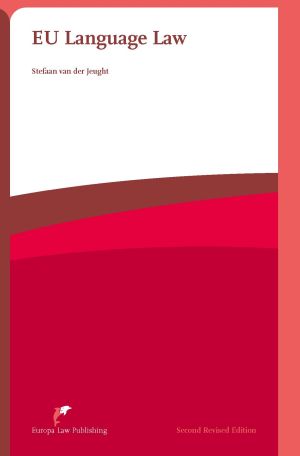
EU Language Law provides a comprehensive overview of all the legal provisions governing the use of languages in the EU. It covers the choice of Treaty languages and the rationale behind the implicit language arrangements of the EU institutions, bodies and agencies, as well as the designation of official and working languages. It provides guidance on how to deal with discrepancies between equally authentic linguistic versions of EU law. The book also examines all the provisions of EU law on the use of languages in the area of freedom, security and justice, covering a wide range of topics, including road traffic offences, the recognition of national court decisions, the European arrest warrant and the linguistic rights of crime victims. It also focuses on the impact of EU law on regulatory linguistic requirements in the EU internal market, providing a comprehensive overview of the rules on product labelling and the assessment of language skills for employees or self-employed professionals, such as doctors and lawyers who wish to work in other EU Member States. It also covers other key issues such as language testing as part of integration programmes for newcomers in society. In this respect, the 2025 edition is more comprehensive than the previous one and offers valuable insights for all those involved in the field of EU language regulation, including academics, legal practitioners and policy-makers.